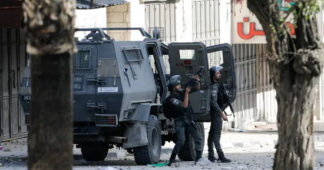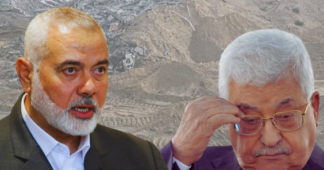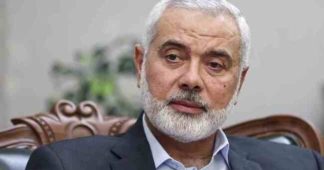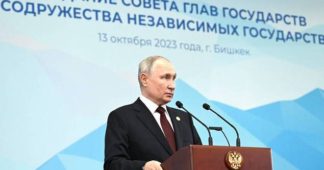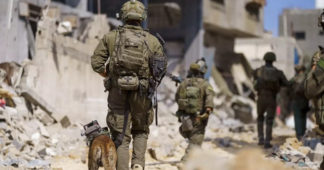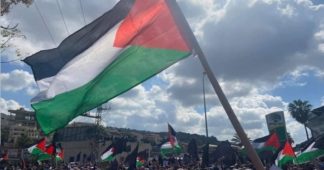The Left must confront this basic fact. One cannot claim solidarity with Palestine and dismiss, overlook, or exclude Hamas.
Recently, a rash of articles has surfaced criticizing the Western left for “celebrating” Hamas. Most of these critiques say that reducing support for Palestinian resistance to supporting Hamas is a disservice to Palestinians because Palestinians represent a multiplicity of voices with different political dispositions. Instead, these arguments call on the Western left to reckon with the complexity and diversity of Palestinian politics.
Bashir Abu-Manneh’s article in Jacobin, “The Palestinian Resistance Isn’t a Monolith,” chastises what he claims is the left’s celebration of a “socially regressive” movement such as Hamas in an article that reads more like a hidden critique of armed resistance itself than of Hamas. Matan Kaminer penned a response to an article by Andreas Malm, both published on the Verso blog, stating that the global “solidarity movement must engage with the diversity of Palestinian politics,” in which he takes issue with “counter-systemic” forces like Hamas that lack a leftist agenda. In Boston Review, Ayça Çubukçu responded to Jodi Dean’s article, “Palestine speaks for everyone,” due to Dean’s suggestion that the global solidarity movement should stand alongside the organized left in Palestine in support of the current Hamas leadership for the struggle for liberation.
Of course, giving attention to Palestinian politics, its history, and its current conditions and multiplicity is imperative. Indeed, despite the relatively small number of Palestinians, and despite the fact that Palestine between the river and the sea is a small geography fraught with highly contested terrain, one can find a myriad of Palestinians who echo any number of fantasies or ideologies about the conflict — including Palestinians who readily affirm Zionist ideology.
But funnily enough, this is what Western leftist critics of Hamas get wrong. They fail to understand that the diversity in Palestinian society and politics also translates into diverging attitudes toward resistance to colonialism. While they call for a nuanced understanding of Palestinian politics, that nuance doesn’t extend to an understanding of the dynamics and forces that both motivate and shy away from (or actively oppose) anticolonial resistance.
This ignorance of Palestinian politics is almost willful. It harbors a secret hostility to resistance — especially armed resistance — but claims to oppose Hamas on entirely different, perhaps ideological, grounds. Yet to truly understand intra-Palestinian dynamics and unpack the “monolith,” we have to actually understand how Palestinian political forces have evolved with respect to the very idea of resistance in the first place.
Fragmented geography, fragmented politics
Palestinians are subjected to various divisions meticulously crafted by Israel. In fact, it would be highly surprising if Palestinians were unified when their everyday lives are so radically different — dispersed across the globe and subjected to various governmentalities and modalities of Israeli control. These divisions are not only geographic but also entail different levels of privilege and exclusion imposed by the colonial state. I speak of Gaza, the West Bank, Jerusalem, the territories of 1948, and the diaspora.
Moreover, this radical fragmentation has led many Palestinians to begin questioning the very notion of our unity as a people, pondering whether the discrepancy in the capacity of Palestinians to resist is a sign of the weight of geographic divisions and various colonial governmentalities after 75 years.
The genocidal war in Gaza exposed the simple fact that Palestinians in their different localities — aside from Gaza — have been incapable of accumulating power, devising new tactics, forging new organizations, or building a new intellectual and material edifice for confronting the challenge that settler colonialism presents to Palestinian people everywhere. Nothing clarifies this failure more than the paralytic fear that has gripped Palestinian society outside Gaza and outside some of the more advanced articulations of the struggle and new modes of resistance that have risen in the past decade, including the primacy of tactics like atomized acts of resistance in the West Bank and ‘48 Palestine and the proliferation of armed self-defense zones in the northern West Bank.
This multiplicity is not merely a function of the variegated political ideologies amongst Palestinians that fall under different modes of structural control. Rather, it erupts within the very fabric of the individual Palestinian psyche. An intense internal dialogue unfolds where Palestinians are torn between the radical potentiality of resistance and their visceral dread of the relentless Israeli military juggernaut. Consider the paradox between the desire for liberation and the gnawing fear that any disturbance of everyday life — even one caused by resistance — could unravel the fragile semblance of normalcy. This is the true site of ideological struggle, not only in the public sphere but at the level of the individual, where the sublime possibility of freedom confronts the traumatic reality of potential annihilation by a superior military machine.
Each force, with its own demands, pulls the Palestinians towards an array of existential choices — revolution or resignation, emigration or steadfastness, symbolic effacement or the full affirmation of identity through acts of sacrifice. This silent internal dialogue manifests itself in diverse political articulations — in the oscillation between the stance of the intellectual and martyr Bassel Al-Araj, who declared that “resistance always has efficacy in time,” and the more cynical resignation implied by positions like those of Mahmoud Abbas, which proclaim “long live resistance, but it is already dead and should be killed wherever it reappears!”
But let’s not be fooled. The ideological machine tied to the Palestinian Authority that claims unmediated access to “bare reality” operates precisely by denying its own ideology. They boast of seeing the world free from ideological blinders, asserting that their clarity necessitates forging an authoritarian political system that views resistance to colonialism as a “farce” and cooperation with the colonizer as a “sacred” imperative. This realist-pragmatic stance ostensibly leads Palestinians toward a kind of negation — a symbolic, political, and material self-effacement, yet cunningly masking this erasure through pretenses of political representation and establishing a state.
Meanwhile, the ruling class, in its lust for continuity and control, perpetuates a “political realism” that conveniently overlooks its own class bias and social prejudices. A narrow elite from among the colonized profits. The ultimate aim of this pragmatism is to create a reality in which the very notion of resistance is lost in the annals of a compromised reality. But it is nothing more than sophisticated rhetoric justifying security and economic alliance with a settler colonial regime that replaces the colonized with the colonizers.
The result is a continuum in Palestinian politics with varying dispositions towards resistance. One could imagine figures like Mahmoud Abbas and Mansour Abbas on one end of the spectrum, and political formations like Islamic Jihad and Hamas on the other, with hardly any serious political force in the middle.
What all this tells us is that the main dividing line between Palestinian political factions isn’t over the schism between secularism and Islamism, the struggle over divergent socio-economic agendas, or the merits of a particular tactic in service of liberation. All those are important issues in their own right, but what is actually causing a rift in the Palestinian political arena is the chasm between a politics of raw defiance, and a politics of accommodation, cooperation, and collaboration.
Ultimately, the Western left’s quixotic search for a secular progressive alternative to Hamas overlooks a simple fact: at this particular historical juncture, the political forces that are still holding onto and leading a resistance agenda are not of the secular left.
None of this is by accident. Israel and its allies meticulously cultivate and mold a Palestinian leadership that aligns with their colonial ambitions, while at the same time arresting, intimidating, and assassinating alternatives.
This also isn’t unusual for anticolonial movements, and being a member of the colonized does not automatically confer upon you fidelity to the anticolonial effort. In Palestine, a century of colonialism has created many distortions in the Palestinian body politic, transforming the once-revolutionary PLO into a Vichy-like regime that kills the nation in the name of the nation. Other Palestinians have embraced new affinities and identities, including identifying with Israel (to the extent that it’s possible to identify with an entity whose main feature is Jewish supremacism). History has taught us that there are instances where people will also fight for their servitude, and one need not look beyond figures like Joseph Haddad and Mosab Hassan Yousef to understand what that means.
Yet, there’s a deeper struggle at play: Palestinians have long battled not merely for the recognition of their plight but fundamentally for the world to acknowledge the imperative to resist. This necessity to resist and the right to such resistance becomes even more critical in a global context where the narrative of Palestinian resistance is manipulated — cynically used to justify and legitimize Israel’s century-long assault on Palestinian existence and agency. It’s a perverse scenario where the act of resistance, essential for survival and the possibility for justice, is twisted into a justification for the oppression it seeks to overcome.
Hamas is an easy scarecrow here. It is an Islamist political group that both centers a politics of defiance and pushes a social agenda that seeks to reconstitute the Palestinian subject. Critics of resistance can easily point to shortcomings in Hamas’s socioeconomic outlook or deride its “socially regressive” agenda. But they aren’t really interested in undermining Hamas’s social agenda. In truth, they want to undermine or distance themselves from the form of resistance that Hamas chose to pursue. But many of Hamas’s critics offer nothing in their alliance system, in their forms of struggle, or even in their intellectual output that could match its work to accumulate power in the Gaza Strip and its opening of a strategic pandora’s box that has overflowed and deformed the colonial regime, providing a historical moment that includes among its many possibilities the potential for Palestinian liberation.
The politics of ‘Muzawada’
“Muzawada” is a term in the Arab political lexicon that could crudely be translated to “political one-upmanship.” It has a longstanding tradition of being wielded as a tool of disparagement among political rivals, and in practice, its primary function has been to defame and demoralize one’s political competitor by exposing their hypocrisy, unrealistic discourse, or their inability to translate rhetoric into action. The Syrian Marxist intellectual Elias Murkus gave the example of how Syrian Baathists employed muzawada to undermine Jamal Abdul Nasser in the 1960s, pointing out the chasm between his rhetoric and his actions regarding the liberation of Palestine. But Murkus notes that this disparagement did not so much come from a genuine concern for Palestinian liberation as it did originate in the desire to erode Nasser’s charismatic influence within Syria and Lebanon.
In this context, it is not surprising that Palestine historically emerges as the prime theater for such political “outbidding” or “one-upmanship” in the Arab political landscape. Crucially, muzawada is not confined to rhetorical jousting, even though that is how it was historically employed. In Palestine, muzawada evolved from rhetorical outbidding to “actualized outbidding” in the 1990s, where political factions competed with one another through the ability to create and actualize resistance.
These dual manifestations — rhetorical and actualized muzawada— are pivotal for understanding internal Palestinian political rivalries. During the Second Intifada, the emergence of the figure of the “istishhadi” was one such form of actualized one-upping, as it transcended the traditional “fida’i.” The fida’i was a figure of self-sacrifice who would engage the enemy but might return to his base, whereas the istishadi embodied the self-sacrifice of the fighter who did not plan to return to base, but kills and gets killed, thereby becoming a martyr.
The emergence of this new counter-hegemonic force at the turn of the century, largely at the initiative of Hamas and Islamic Jihad, saw the reformulation of resistance through the creation of new oppositional modalities and a new figure of sacrifice for resistance.
In the Second Intifada, “one-upping” meant outdoing one’s political rival through actualized resistance operations. This form of intra-competition saw the labor of resistance as the means of directing internal political grievances outwardly toward the colonizer. Palestinian factions were unified in the direction of their political actions but also competed to outdo their rivals through the actualization of different acts of resistance.
Yet the current nature of the disunity in Palestine is not a form of outbidding similar to the Second Intifada and is not based on the idea of outdoing one’s internal rival. Rather, it is a disunity that emerged once the PA elevated cooperation with Israel to the “sacred” and saw the continuation of resistance as a farce. On the other end of this disunity, Hamas and Islamic Jihad emerged as the most proactive forces leading organized forms of resistance. The division took on geographic, ideological, and political forms.
In this form of outbidding, one side of the political equation employed Israel’s militaristic response to resistance to claim: “See? This is what happens when you resist!” It suspends the search for a politics of defiance, and in fact argues for political paralysis, stasis, and accommodation of Israel at the expense of the long-term ability of Palestinians to resist.
Within this telos, three leftist Palestinian responses have emerged. The first is a left that weds itself to the Palestinian Authority and comprador class on the basis of “secularism” and as a result of its organizational weakness — for example, the Palestinian People’s Party (formerly the Communist Party). Another left positions itself with Islamist forces on the level of shared resistance to anti-colonialism, but distances itself on the level of social agenda, like the Popular Front for the Liberation of Palestine (PFLP). A third left equates between Hamas and the Palestinian Authority in the hopes of being seen as an alternative to both, seemingly claiming that “they are both equally bad,” yet remaining incapable of organizing a social or political alternative, such as the Democratic Front for the Liberation of Palestine.
The notion of being “socially regressive” or “socially progressive” in the current political landscape of Palestine is, to say the least, exceedingly complex. How, for instance, can we reconcile leftist parties that support forms of social regression and political authoritarianism in the West Bank like the current disposition of the remnants of the Communist Party? How do we even define “social regression” within the context of an advancing settler colonialism that seeks to erase an entire society? Isn’t resistance to that colonialism in and of itself a progressive act that will empower the dispossessed? And isn’t collaboration itself a socially regressive force because it subordinates the colonized? Or is the proclaimed ideology of those who resist more important?
Where do we start articulating a socially progressive agenda in concrete situations like the West Bank, where the PA uses a mix of authoritarian practices, insists on forms of banking-education, employs traditional social structures such as families and clans, and sees in the internal foe the ultimate enemy, creating the condition for an ongoing civil war and division as Palestinians also attempt to fight back against colonial encroachment and effacement. On a strictly “Western” plane, there is no totally or fully progressive force in Palestine, but only progressive elements or dispositions — even within political formations that are dismissed as regressive.
Hidden critique of armed resistance
In these successive articles, we encounter a perplexing contortion that seeks to undermine support for resistance, particularly armed resistance. There’s a growing recognition among many in the “West” of the necessity and efficacy of resistance, or at least that after decades of negligence in explaining its sources and necessity, one could start the process of grappling with its reality. This includes engaging with it without rendering it profane. This shift in the Western left does not mean that it has suddenly embraced Islamism, but it recognizes the nature of the condition in which Palestinians are ensnared — a ferocious settler colony that refuses to speak a political language with those it renders abject, that relies on excessive violence and diplomatic and legal impunity, and which employs a complex system of architectural, technological, and indirect forms of control.
But more troublingly, the persistence and evolution of armed resistance defy some of the Palestinian intelligentsia’s operative theories, interests, and political dispositions, including the anxiety of a true break in the colonial regime that permits the work of decolonization to commence.
These are the theories that have persisted for decades, utilizing a widely accepted talking point that Palestinians should refrain from armed resistance in order to cultivate a favorable image in the West, and on the global stage more broadly.
The prevailing notion is that armed resistance is fundamentally incompatible with garnering sympathy for the Palestinian cause. They fetishize a particular reading of the First Intifada as an exemplary model of a largely nonviolent and widespread popular revolt capable of conjuring support from the masses, civil society, and international legal bodies, thus appealing to the liberal sensibilities of mainstream Western societies.
Of course, such a reading also hides the psychic and ideological onslaught that Palestinians faced in the wake of the Second Intifada, which attempted to sear into Palestinian consciousness the notion that resistance is futile, that armed resistance will only bring about havoc, and that Palestinians cannot and should not confront Israel militarily due to the asymmetry in power. However, much like the Palestinian Authority, a defiant alternative built around “popular resistance” or “peaceful popular resistance” was only used as an ideological and psychic tool to sustain what Abu Mazen and the PA called “sacred security cooperation.” Very few attempts to organize popular resistance were conceived, and in many instances, they were also fought by the PA and its security system and were met with severe violence in both Gaza and the West Bank.
The notion that the Western left has suddenly become cheerleaders for Hamas is profoundly disingenuous. Jodi Dean did not celebrate Hamas, but perhaps she found something exhilarating in the act of defiance — the march to break the colonial regime that encircles Gaza. She aligned herself with part of the Palestinian left that engages in resistance. Most Palestinians shared Dean’s sentiment on that particular day, including many who later grew disillusioned or revised their views, either out of ethical considerations or due to Israel’s carpet-bombing campaign and genocidal war, which led some to conclude that “it wasn’t worth it.”
Yes, there are many voices that detest Hamas in Gaza, the West Bank, and across the Palestinian polity — for a myriad of reasons. Among them are many on the Palestinian “left” who use their ideological differences and the Islamist-secular divide as a cover for their rejection of “resistance” altogether. As Bassel Al-Araj said, if the left in Palestine wants to compete with Islamists, they should compete in resistance. Muzawada through action.
Hamas, at the end of the day, is the contemporary articulation of a long history of resistance that folds within it the peasants of pre-Nakba Palestine, Palestinian revolutionaries in exile during the early years of the PLO, and the Islamists who took the wide-scale initiative in the 80s and beyond.
Many among the secular left have grown pale, rejecting Hamas’s resistance not out of a conviction of its inevitable failure, but rather due to a deep-seated anxiety about its potential success.
This isn’t merely an ethical opposition to the use of violence; it’s a fear that the Islamists might actually prove to be more effective than their own, now largely melancholic and demobilized, political stance. Meanwhile, certain factions within the Palestinian elite gaze upon Israel as a beacon of modernity, and are driven by a profound fear of their own perceived “regressive” society — a telling indication of their ideological dispositions, ensnared in the lure of the Other and terrified of the emancipatory potential of the Palestinian masses.
To have political and ideological differences with Hamas and tactical disagreements, including ethical problems with its targeting or its war-making abilities, is one thing. But to undermine the minimum level of understanding of why Palestinians, in all their ideological formations and historical articulations, see resistance in all its armed and unarmed forms as a necessity, is another. In fact, it is nothing short of brash, especially in an environment that fires professors for voicing any emotion or symbolism of support for Palestinian resistance.
The world can indeed recognize the necessity of resistance and the efforts of individuals to fight and reclaim what they’ve lost. To do so moves beyond the concept of victimhood to which many liberals in Palestine and some within the left want us to confine our struggle — a form of Palestinian subjectivity that only elicits pity.
Resistance is pre-political
Even in the absence of formal armed movements or strict ideological formations, the West Bank witnessed the emergence of small, informal groups — trust circles, collections of friends, and small-scale armed units that transcended ideological boundaries. This means that any analysis must start from tangible realities. Projecting idealized, rigid frameworks on political groups is not only unhelpful but intellectually lazy and profoundly ignorant of the fact that this generation will continue to resist.
Resistance is pre-political. It exists organically among this generation of Palestinians who continue to be erased from their land and continue to lose their friends and loved ones. It is those forces who do well in organizing that latent resistance and end up becoming a force to be reckoned with in Palestinian society. It is a necessity, and even in its militarization, it grows from tangible material realities, rather than from ideological choices alone.
The prevailing fear, as always, is that beneath the guise of significant ideological differences (which I also hold), our critique of resistance becomes an attempt to extinguish its very possibility.
Hamas represents only one of many political projects and historical attempts to break through the Iron Wall imposed by Israel. It might fail or it might succeed, but it hasn’t done anything that other socially progressive forces in Palestine haven’t tried. More importantly, Hamas in Gaza is not merely an external influence or importation; it is intrinsically woven into the larger social fabric and, at the very least, merits more than being summarily dismissed on simplistic grounds of being “regressive” versus “progressive.”
Hamas isn’t going anywhere in Palestinian politics. It is an energetic political entity that has astutely learned from the mistakes of its predecessor, the PLO, both in warfare and negotiations. It has meticulously invested its intellectual, political, and military resources into understanding Israel and its psychic center of gravity. Whether we like it or not, Hamas is now the primary force leading the Palestinian struggle.
The left must confront this basic fact. One cannot ground solidarity with Palestine on a politics that dismisses, overlooks, or excludes Hamas. This stance fails to grasp the complexities and contradictions inherent in the Palestinian struggle. In doing so, the left overlooks the dividing line between collaboration and resistance to its peril.
We remind our readers that publication of articles on our site does not mean that we agree with what is written. Our policy is to publish anything which we consider of interest, so as to assist our readers in forming their opinions. Sometimes we even publish articles with which we totally disagree, since we believe it is important for our readers to be informed on as wide a spectrum of views as possible.
